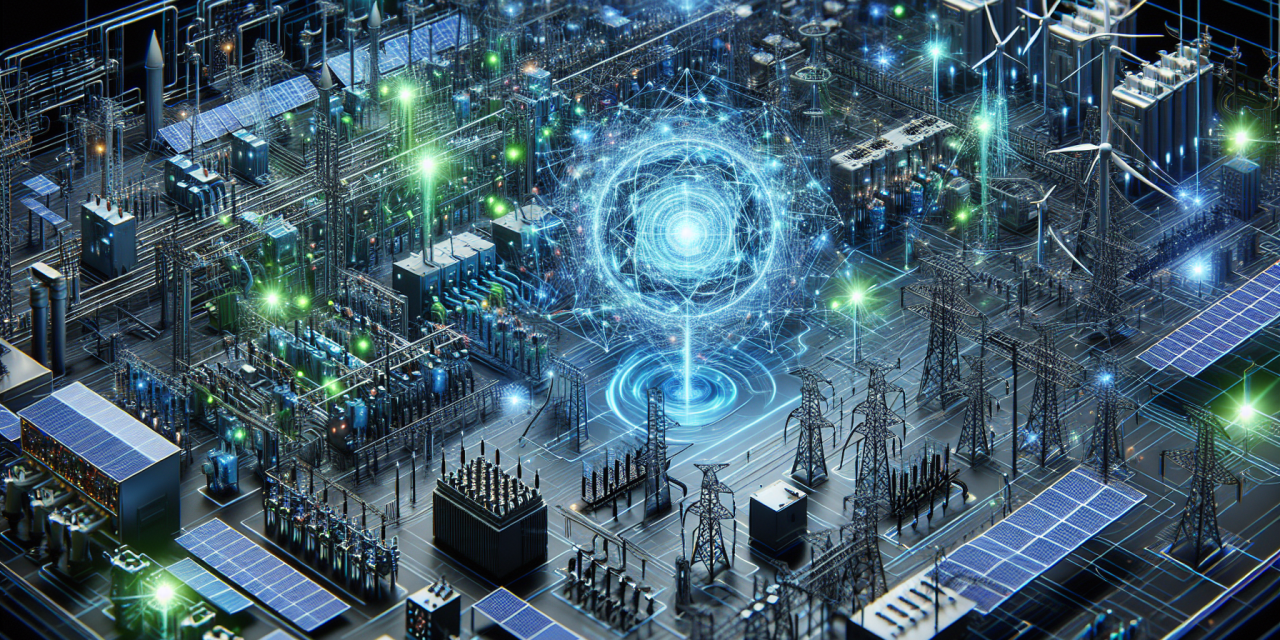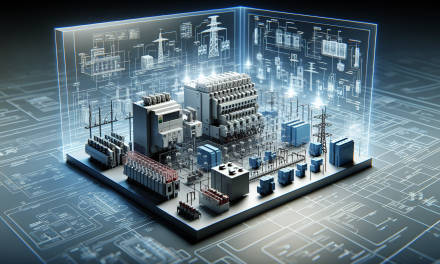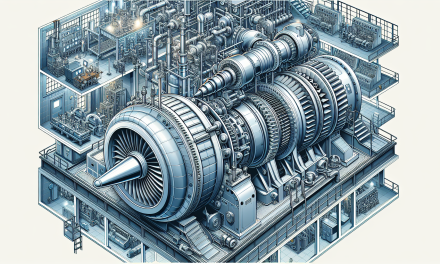Table of Contents
Introduction
As the world transitions toward more sustainable energy solutions, engineers and technicians find themselves in a dynamic environment filled with opportunities for innovation. Modern electrical power systems are central to achieving this transition. Therefore, understanding how these systems work and how to maintain them is essential for all professionals in the field.
Understanding Modern Power Systems
Modern electrical power systems integrate various technologies and methodologies to ensure reliable electricity delivery. Today, these systems rely on advanced communication networks and automated control mechanisms to manage the increasingly complex grid. Consequently, grasping these principles becomes crucial for professionals intent on excelling in their careers.
Definition and Scope
Electrical power systems encompass generation, transmission, distribution, and consumption of electric energy. They include various sources, such as solar, wind, and traditional fossil fuels, each playing a unique role in the overall architecture of power delivery.
Emergence of Smart Grids
Smart grids represent a significant evolution in the field, aiming to enhance the efficiency and reliability of the electricity supply. By utilizing digital technology and advanced metering infrastructure, smart grids provide real-time data for monitoring and management, presenting numerous benefits for both providers and consumers.
Key Components of Power Systems
Understanding the key components of electrical power systems is vital to navigating this complex landscape successfully. Below are some fundamental elements that every professional should know.
Generation
Power generation involves converting various energy sources into electrical energy. Modern techniques in this domain increasingly focus on sustainability and minimizing environmental impacts.
Transmission and Distribution
The transmission and distribution networks ensure electricity reaches homes and businesses. High-voltage transmission lines carry electricity over long distances, while local distribution systems deliver it to consumers. Each layer plays a crucial role in maintaining power integrity.
Load Management
Load management involves adjusting the power usage of consumers based on supply availability. It becomes increasingly important as more renewable sources become integrated, adding variability to energy supply.
Challenges in Electrical Power Systems
Despite the advancements, professionals face numerous challenges in managing electrical power systems. These include:
Integration of Renewable Sources
The shift to renewable energy sources introduces variability, requiring innovative strategies for integration into existing systems.
Reliability and Security Concerns
As cyber threats become prevalent, ensuring the security of electrical systems has become a pressing concern. Professionals must continuously work to protect the grid from potential attacks
The Importance of Training in Power Systems
To face modern challenges, continuous education and training in electrical power systems not only enhance skills but also create a knowledgeable workforce prepared for future challenges. Such training allows professionals to stay updated on the latest technologies and methodologies.
Enhancing Skill Sets
Investing time in training equips professionals with the latest skills necessary for managing current technologies effectively. Training emphasizes the significance of both theoretical knowledge and practical experience.
Staying Competitive
With technological advancements occurring at a rapid pace, ongoing training becomes vital for staying competitive in the job market. Knowing the latest developments can make a significant difference in career advancement.
Benefits of Effective Training
Participating in specialized training leads to numerous benefits that extend beyond individual development. Here are a few advantages gained from an effective training regimen:
Improved Efficiency
Training provides professionals with insight into best practices, streamlining processes and improving efficiency. Understanding modern electrical power systems leads to better operational performance.
Enhanced Problem-Solving Abilities
In-depth knowledge empowers technicians and engineers to identify problems quickly and create effective solutions. This competency is vital in avoiding costly downtimes and ensuring reliability.
Real-World Applications
Through structured learning and practical experiences, professionals can apply their knowledge in real-world contexts. Practical understanding enhances collaboration with colleagues, stakeholders, and clients alike.
Utility Management
Understanding how utilities operate enables professionals to contribute meaningfully to discussions on policy and technological advancements.
Infrastructure Design
Knowledge of system design and operation allows engineers to engage in creating robust infrastructure capable of meeting future energy demands.
Industry Insights and Best Practices
Industry leaders emphasize continuous improvement and adaptation to challenges faced in electrical power systems. Engaging with resources such as Modern Electrical Power Systems Engineering Course can illuminate pathways toward sustainable practices.
Exploring Efficiency Strategies
Strategies for pursuing efficiency in electrical systems escalate with advancements in technology. Valuable resources can be found, such as Unlocking Efficiency with Centrifugal Compressors and Steam Turbines.
Maintenance Best Practices
Regular maintenance procedures are essential for ensuring operational efficiency. Discovering insights into optimal operation and maintenance can enhance understanding through articles like Mastering Cooling Towers: Essential Insights for Optimal Operation and Maintenance.
Reliability and Performance
Understanding the interplay between reliability and performance metrics is critical in managing systems effectively. Useful resources include Understanding the Crucial Aspects of Reliability and Operational Performance in Electric Power Systems.
Energy Audits and Management
Conducting energy audits is essential in improving energy efficiency. For more information, consider reading Unlocking Energy Efficiency: A Comprehensive Guide to Energy Audit and Management.
Professional Development Opportunities
Professionals seeking to expand their expertise would benefit from engaging in courses focused on power systems and infrastructure. A great starting point is Unleashing Professional Potential: A Comprehensive Journey in Power, Electricity, and Industry Infrastructure.
Frequently Asked Questions
What are modern electrical power systems?
Modern electrical power systems consist of various components, including generation, transmission, and distribution technologies, designed to deliver electricity efficiently and sustainably.
Why is training important for professionals in this field?
Training equips professionals with the necessary skills and knowledge to adapt to technological advancements and overcome challenges, enhancing their overall career prospects.
How does effective training improve efficiency?
Effective training provides insights into best practices, resulting in streamlined processes and improved operational performance.
Conclusion
In an era marked by rapid technological advancements and the pressing need for sustainable energy solutions, professionals working in electrical power systems must remain flexible and committed to lifelong learning. By equipping themselves with the right skills and insights, they not only enhance their own career trajectories but also contribute to the broader goal of creating resilient, sustainable power systems for the future. Completing comprehensive training through resources such as Modern Electrical Power Systems Engineering Course can be a pivotal step toward achieving these objectives.





